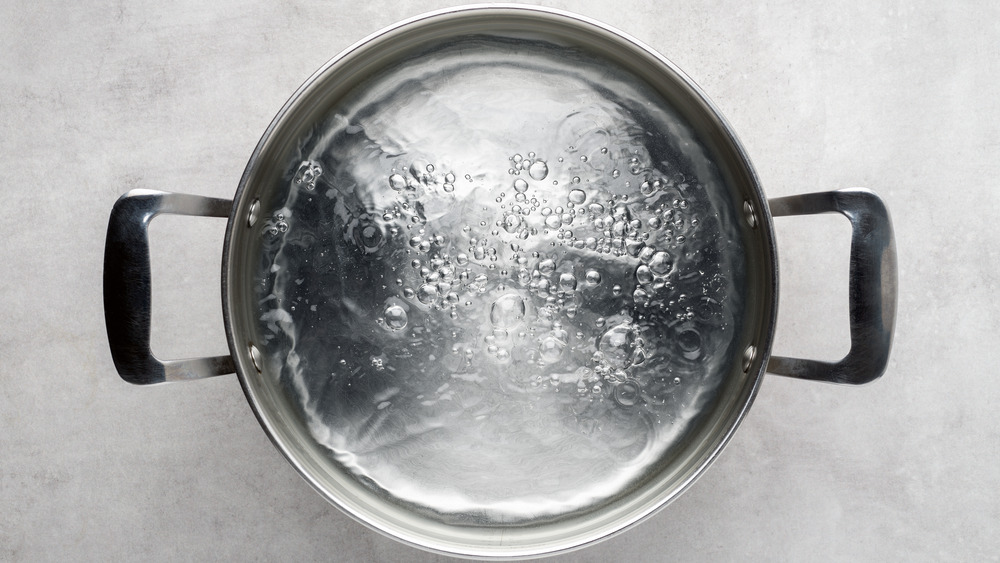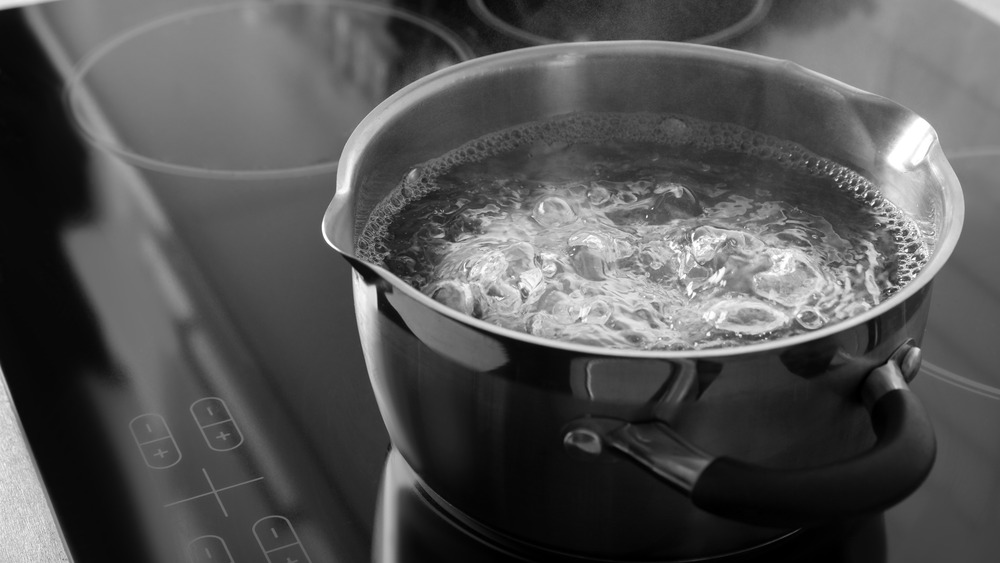The Temperature Mistake You're Probably Making When Cooking
What temperature mistakes are you probably making while cooking? Chances are you're doing something wrong with water, the unsung hero of kitchens everywhere. It really doesn't get nearly enough credit or praise for its versatility in cooking, especially considering that it's used when preparing nearly every meal. Think we're wrong? Try cooking without water for a day and see how good your stir-fries, oatmeal, pasta, rice, or meats turn out.
While it's used in a huge variety of culinary situations, there's a lot of nuance needed when cooking with water that's often neglected, probably because most people aren't aware there's a difference between hot and cold. To that end, Bon Appetit has an entire article on cooking with water that's honestly sort of game changing, if we're being honest.
We didn't know either, but having done some research, it totally makes sense that using hot and cold water for cooking different types of food totally checks out. After all, veggies and other foods with different water content need to be cooked at different temperatures in the oven, so why shouldn't the same concept apply to foods being cooked in water?
When to use hot or cold water
This was sort of a mind-blowing dose of information, frankly, but it makes a lot of sense once it's explained. In their article, Bon Appetit explains that when cooking denser, more slow-cooking ingredients (think: chicken, beans, whole potatoes), you should start them in cold water to ensure the outsides don't cook faster than the insides. That way, you end up with a more uniform temperature throughout each ingredient and you're spared from food that is half perfectly cooked, half overcooked. We're pretty sure everyone is aiming for all their food to be perfectly cooked, here.
Conversely, quicker-cooking foods (think: oats, cauliflower, green beans) are likely to get bloated if they spend too much time in water, so you're better off cooking them in hot water from the get-go. This prevents them from getting mushy and reaching the dreaded point of near-inedibility. We can't speak for everyone, but this is especially game changing for cooking potatoes and other root vegetables going forward.

